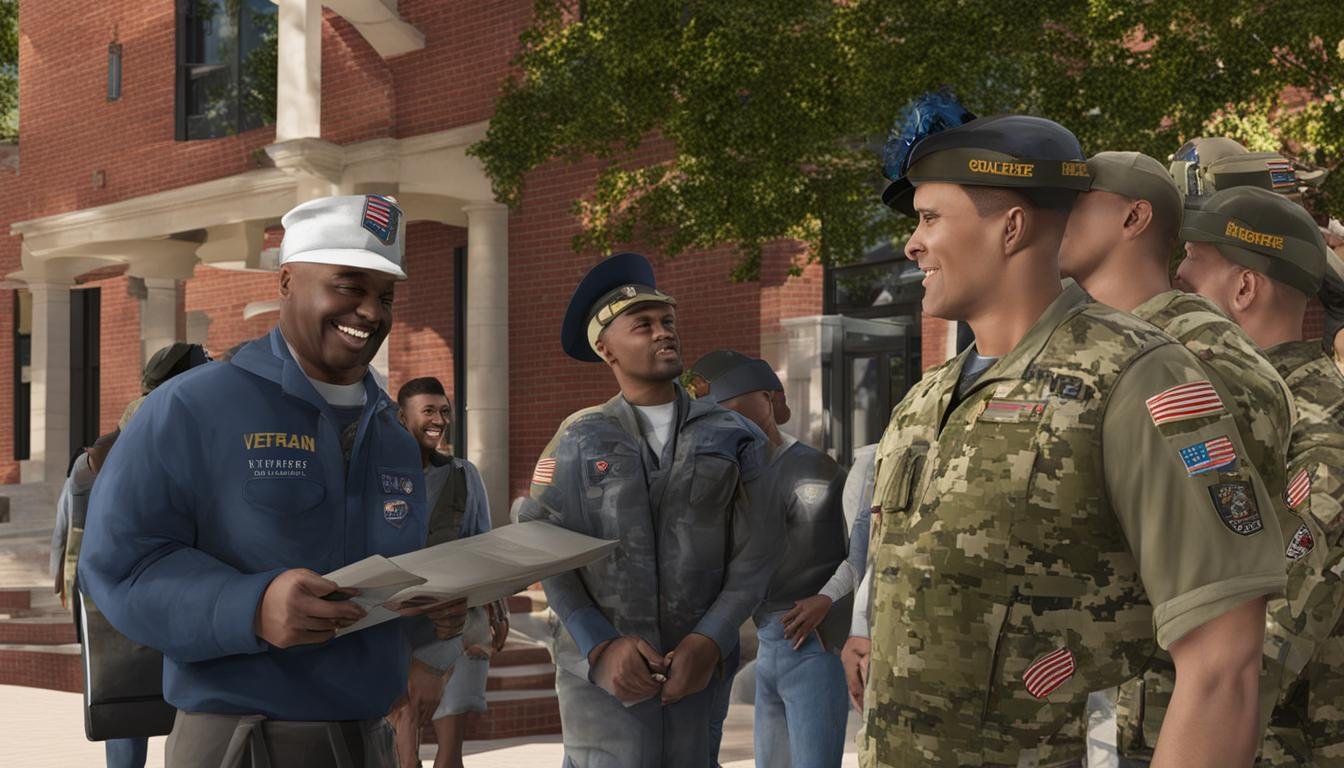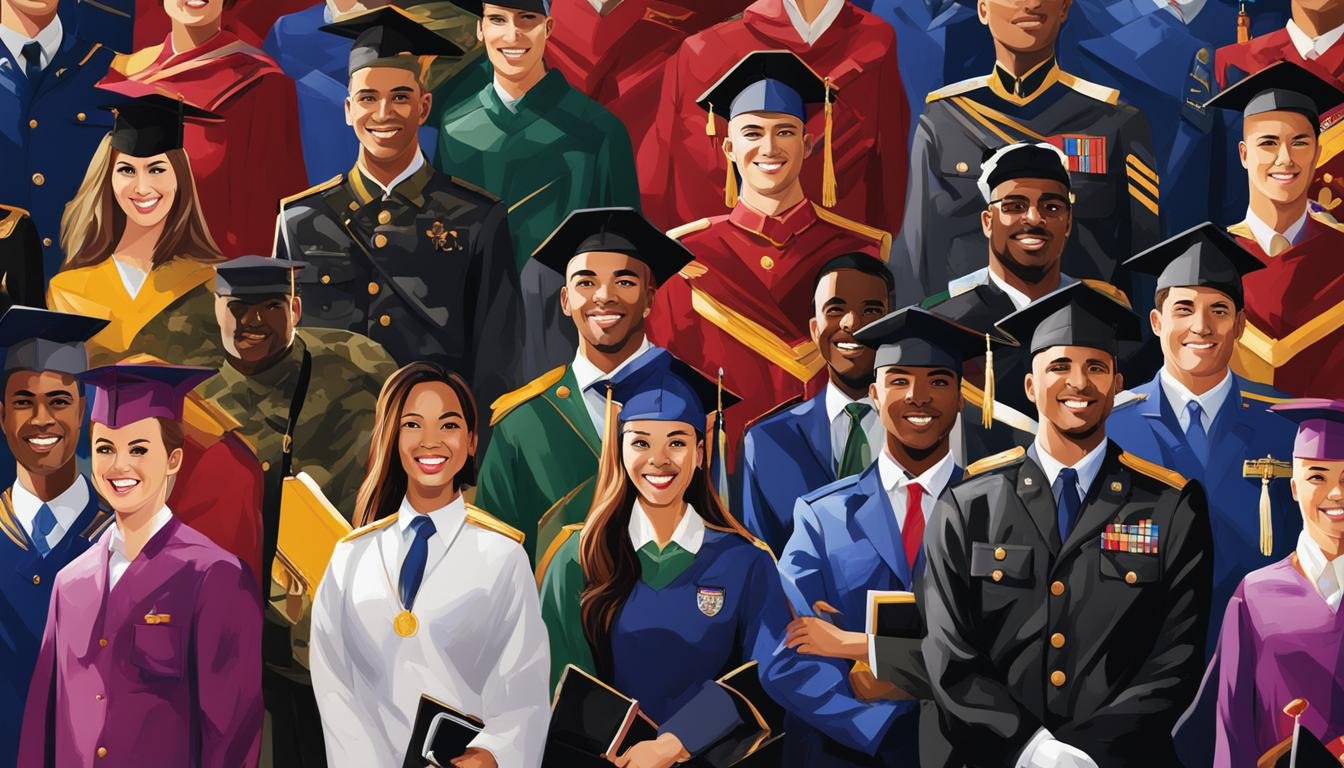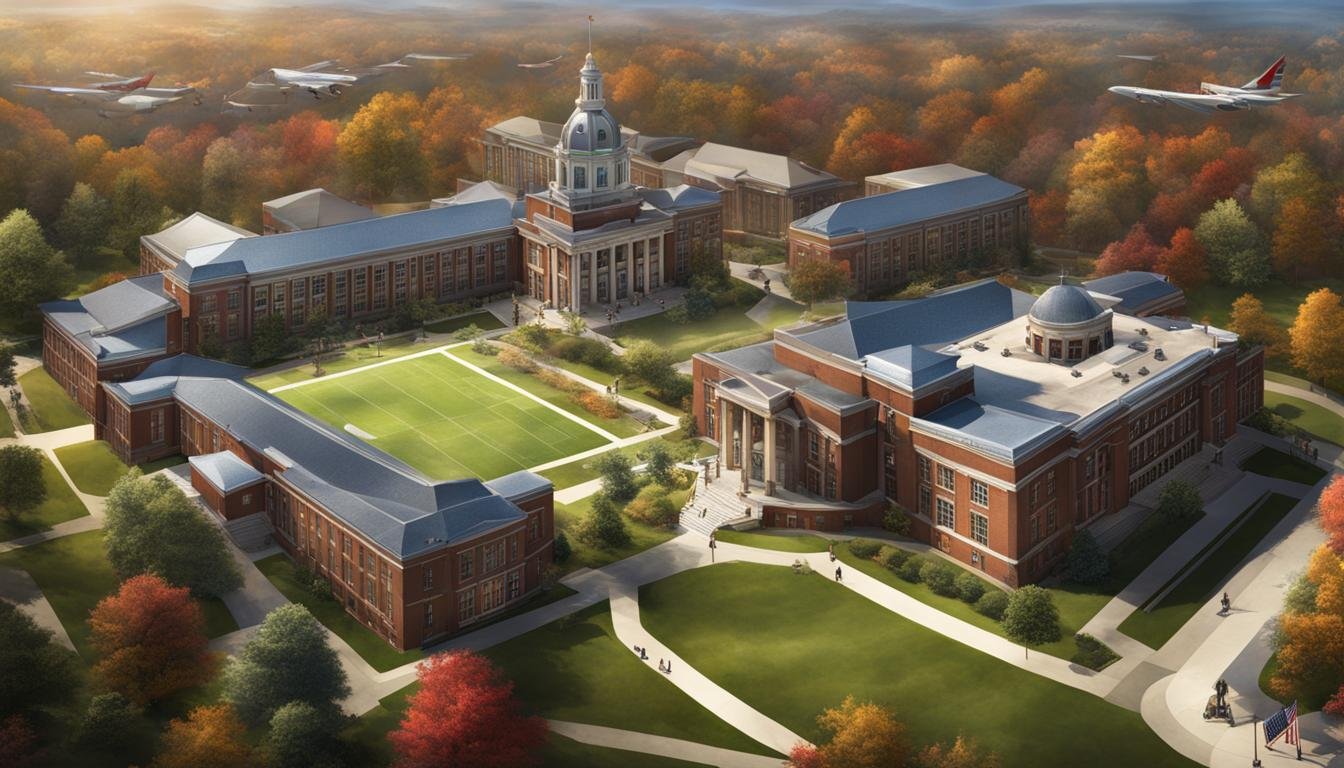Are you a veteran considering furthering your education? Choosing the right college is crucial for your success as a student and as a veteran. Understanding the importance of veteran support in college selection can make all the difference in your academic journey.
Since 2009, over two million veterans have returned to college to obtain degrees. With 96% of higher education institutions in the US enrolling veterans, there is a growing focus on creating veteran-friendly campuses and support programs.
But why is veteran support in college selection so important? The benefits are numerous. Student veterans have been found to earn higher GPAs than their civilian counterparts, thanks to their discipline, resilience, and strong work ethic acquired during military service. They also bring unique perspectives and experiences that enrich campus diversity and learning.
As a veteran, selecting a college that prioritizes your needs and provides the necessary resources and support services is crucial. These colleges understand the challenges you may face during the transition from military to college life and are dedicated to helping you succeed.
Key Takeaways:
- Veteran support in college selection is essential for a successful academic journey.
- Student veterans earn higher GPAs and offer unique perspectives and experiences.
- Choosing a veteran-friendly college with dedicated support services is crucial.
- Veterans bring valuable skills and diversity to college campuses.
- Applying to college after the military requires careful planning and research.
The Academic Success of Student Veterans
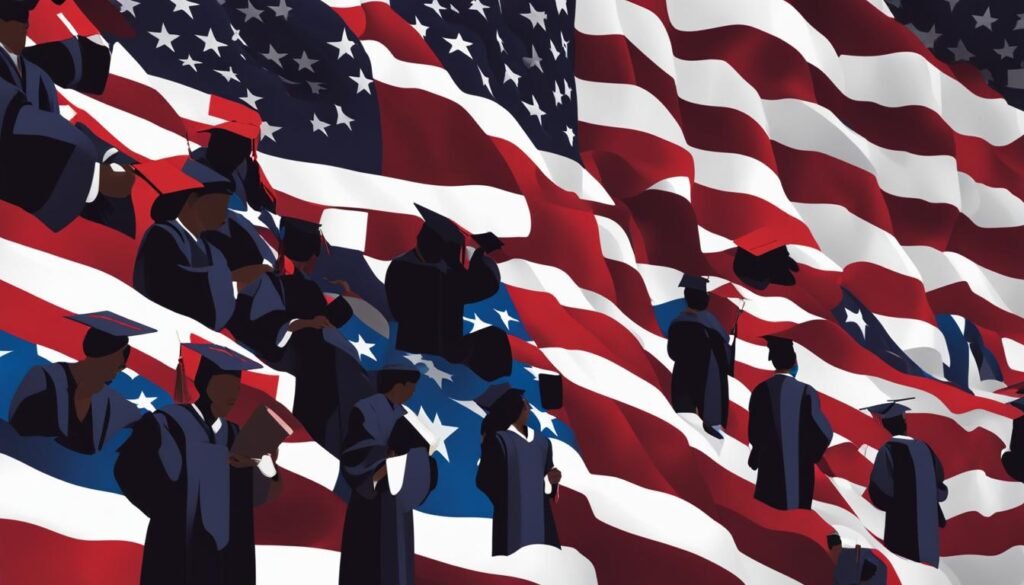
Student veterans have consistently shown impressive academic performance, excelling both in their GPAs and graduation rates. Not only do they outperform their nonveteran peers academically, but they also demonstrate higher levels of educational attainment. Post-9/11 veterans, in particular, have achieved even greater success in terms of their educational milestones compared to earlier generations.
When it comes to GPA, student veterans consistently earn higher grades than their nonveteran counterparts. This exceptional academic performance highlights their dedication, discipline, and ability to adapt to the demands of higher education. Additionally, the graduation rates of student veterans are higher, indicating their commitment to completing their degree programs and successfully transitioning into the workforce.
Furthermore, student veterans are more likely to pursue advanced degrees, revealing their ambition and desire for continuous learning. Many student veterans continue their education after obtaining vocational, associate’s, or bachelor’s degrees, with a significant percentage enrolling in graduate and professional programs. These findings attest to the resilience and determination of student veterans in their pursuit of higher education.
Comparative Academic Performance
| Student Veterans | Nonveteran Peers | |
|---|---|---|
| Average GPA | 3.5 | 3.2 |
| Graduation Rate | 85% | 77% |
| Advanced Degree Pursuit | 40% | 30% |
These statistics clearly highlight the exceptional performance and commitment of student veterans to their academic pursuits. As a result, higher education institutions should continue to provide robust support systems and resources to ensure the continued success of this valuable student population.
Skills and Diversity of Student Veterans
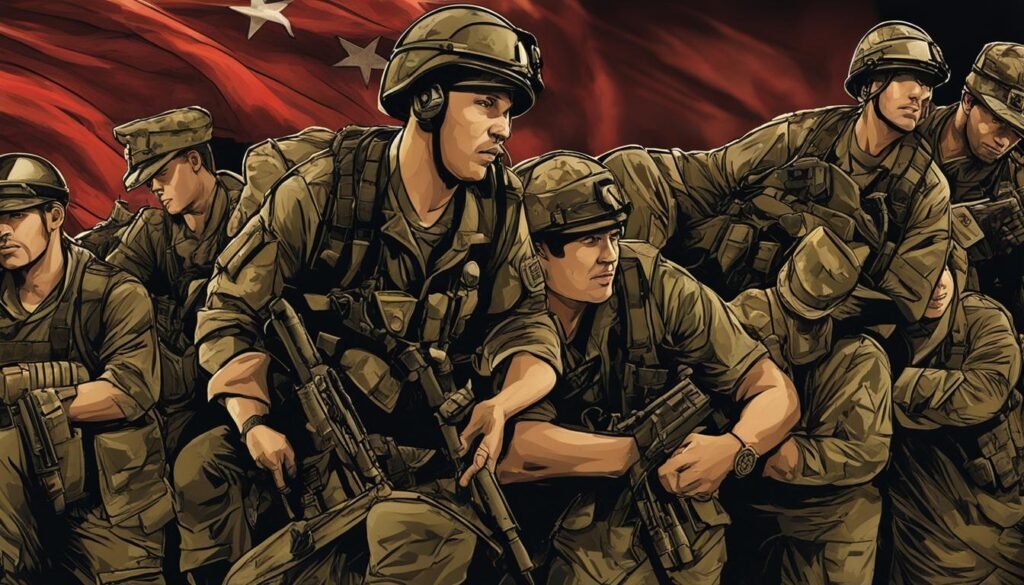
Student veterans bring a wealth of skills and experiences to college campuses, enhancing the educational environment for all. Their military training equips them with valuable transferrable skills that make them stand out in various disciplines. Additionally, student veterans contribute to the diversity of campus communities, bringing unique perspectives and insights.
Transferrable Skills of Veterans
One of the key advantages that student veterans possess is their extensive set of transferable skills. Military training instills in them attributes such as adaptability, self-discipline, leadership, teamwork, and professionalism. These skills are highly valuable in the academic setting and beyond. Student veterans often excel in high-demand fields such as business, health, and STEM due to their enhanced aptitude in these areas.
Military Training and Diversity
Student veterans also contribute to campus diversity through their exposure to different cultures and experiences during their military service. They bring a unique perspective to classroom discussions and collaborative projects, enriching the learning environment for their peers. Furthermore, their ability to adapt to diverse environments and work effectively with individuals from various backgrounds strengthens the overall sense of community on campus.
As a result, recruiting and supporting student veterans in their academic endeavors should be a priority for higher education institutions. By recognizing and leveraging their skills and diversity, colleges and universities can create an inclusive and enriching environment for all students.
Table: Transferrable Skills Acquired by Student Veterans
| Skills | Description |
|---|---|
| Adaptability | Ability to adjust to changing circumstances and environments |
| Self-discipline | Strong work ethic and ability to manage time effectively |
| Leadership | Experience in leading teams and making critical decisions |
| Teamwork | Collaboration and cooperation with diverse individuals |
| Professionalism | High standards of conduct and ethical behavior |
Tips for Veterans Applying to College
If you are a veteran considering applying to college after your military service, there are several important tips to keep in mind. Building a strong support system early on is crucial. Surround yourself with individuals who understand and can guide you through the college application process. Additionally, setting clear goals for your education and career will help you stay focused and motivated throughout your college journey.
It is also essential to research and find military-friendly colleges that offer strong academic programs and support services specifically tailored to veterans. These colleges understand the unique challenges and experiences veterans face and are committed to providing the resources you need to succeed.
When applying to college, be sure to explore opportunities for college credits based on your military experience. Many colleges offer credit for the training and skills you gained during your service, which can help you expedite your degree completion. Moreover, don’t forget to apply for financial aid. There are various financial assistance programs available specifically for veterans, so take advantage of these resources to help alleviate the financial burden of pursuing higher education.
The transition from military to civilian life can be challenging, but there are support systems in place to assist you. Reach out to veteran resource centers or organizations that provide guidance and support during this transition. They can offer valuable advice, connections, and resources to help smooth your path to success in college and beyond.

